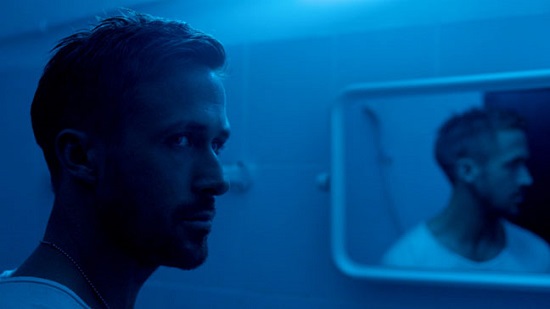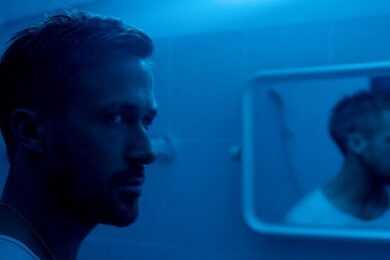A large part of director Nicholas Winding Refn’s previous film Drive’s popularity and apparent freshness stemmed from its reappropriation of aesthetics traditionally associated with post-War European Art Cinema. By presenting a relatively straightforward, commercially viable narrative with an increased degree of stylisation and experimentation (when set against most current Hollywood products), Drive had the ability to appeal to a variety of tastes and to transcend various high/low-trash/art categorisations. Such strategies are of course nothing new within mainstream cinematic productions. Various works of Altman, Raffelson, P.T. Anderson, Malick, Hopper, Soderbergh, Mann and Cassavetes, have, to drastically varying degrees and over a large time period, used clashing stylisation and narrative content to cross such taste divides. As such, these filmmakers were able to generate conversation and admiration in both artistic and commercial spheres- garnering critical kudos and financial reward. Drive‘s reappropriation of differing styles, including narrative longuers, long takes and reduced causal linkages, offered Refn’s camera the time to simply stare at, and enshrine, Ryan Gosling’s image and star persona. Suppression of narration and increased use of long takes sent Gosling’s popularity into overdrive.
Only God Forgives expands upon many of the aesthetic choices made in Drive, however the end result is much less effective. The straightforward narrative of the previous film meshed well with Refn’s style- clarity of purpose shone through, both within the central character’s motivation and Refn’s direction. The main issue with Only God… is that the narrative is muddier in both content and organisation. Where Drive circled around a valiant romance, Only God’s… central relationship is a schlockier Oedipal tug of war between mother and son. Julian Thompson (Gosling) runs a Muay Thai boxing club in Bangkok, a front for his brother Billy’s (Tom Burke) drug dealings. Billy is killed in revenge attack, facilitated by Lt. Chang (Vithaya Pansringarm), after the rape and murder of a 16-year-old prostitute. Julian initially distances himself from the death of his brother, for understandable reasons- firstly the involvement of the law in the killing, and secondly the heinous nature of Billy’s crime. It is only after the arrival of the pair’s mother Crystal (Kristin Scott Thomas), that Julian is pressured into taking action. This short, and truncated, synopsis highlights the fact that Refn’s new film has a lot more going on than the pair’s previous collaboration. There are more characters to deal with here, but Refn continues to build on the narrative suppression of Drive. A relatively complex story is delivered with the same minimalist sensibility, thus occasionally confusing events and character motivation. What worked well for a film with one central character makes this new work seem unwieldy and messy. The narrative tracks do not cohere into something more overarching and Gosling’s stoic ‘non-acting’ is pushed to absurd extremes.
The rest of the film mainly riffs off three narrative strands- Crystal’s manipulation of Julian (and all the Oedipal significance Refn can lump in), languid and beautified episodes of violence that extend from Crystal’s puppetry, and finally, something new for the Refn/Gosling behemoth, attempts at some inner-psychological exploration by way of interspersed dreamlike flashbacks. On a purely functional level, these flashbacks fail due to the fact that they are never demarcated from the rest of the film. They largely drift by without advancing the narrative or fleshing out Julian’s reactions to the events around him. The result then is clunky gearshifts between these pseudo-emotive psychological episodes and the more campy Oedipal interactions. In addition, Kristin Scott Thomas’ performance is tonally ill suited throughout. Her absurdly unpleasant interactions with a hotel receptionist verge on the comical- taking the film somewhere I’m unsure Refn wanted to go: into the realm of bad exploitation, complete with clunky one-liners.
The film’s saving grace is the fact that it undeniably looks great. Larry Smith’s cinematography lends this very unreal and skewed neo-Bangkok a dazzling sheen. The slow creeps and retreats down corridors have a formal brilliance, the fight sequences are tidily composed and the city dazzles. Yet there is a huge hole at the film’s heart and it remains unable to draw us in emotionally. Of course this could have been Refn’s intention. Perhaps this emotional detachment is meant to expound on Julian’s inner psychology- destroyed by both physical and mental abuse. Though I think this is being too generous. The dream sequences seem to strive for something to draw the film together emotionally, though ultimately they fall into the same vacuous hole. Where Drive circulated around one character, building to a solid emotional crescendo, Only God… is too unfocused in where it wants to place its emotional grip.
Refn’s rigorous adherence to his cultivated style marks him out as a very self-conscious filmmaker. Similarly, Gosling’s unwavering faith in his deadpan acting suggests a lack of confidence to break new territory. Perhaps with his next feature Refn can push forward into unexplored ground, challenging expectations, rather than fulfilling preconceptions- an ethos central to the work of all the aforementioned directors, in whose towering company Refn might one day be considered.
Only God Forgives is in UK cinemas from today



